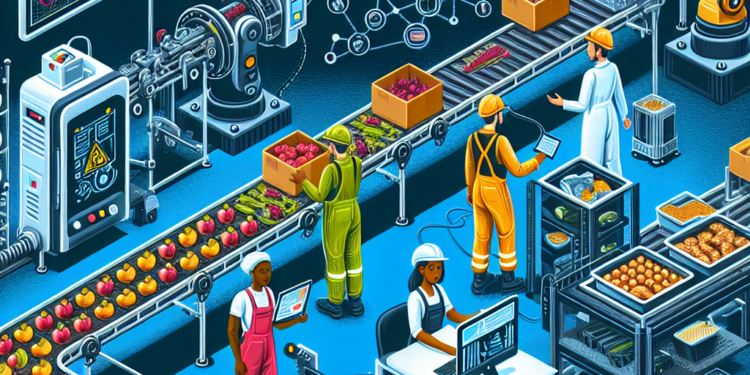Artificial intelligence (AI) has gained significant traction in various industries, revolutionizing the way tasks are carried out and improving efficiency. Among the industries that have been greatly impacted by AI technology is the food industry. The implementation of AI has transformed processes such as food production, packaging, distribution, and even customer service. In this case study, we will delve into several key examples of how AI is being used in the food industry, and the benefits that have resulted from its integration.
One of the primary areas in which AI has made a significant impact in the food industry is in food production. AI-powered robots and machines are being utilized in various stages of food manufacturing, from mixing ingredients to packaging the final product. By using AI technology, food manufacturers are able to automate repetitive tasks, increase production efficiency, and improve product quality consistency. For example, McCormick, a leading spice and flavor company, has implemented AI in their production process to develop new product flavors more quickly and accurately. The use of AI algorithms has enabled the company to analyze consumer preferences and predict trends, allowing them to stay ahead of the competition.
Additionally, AI is being used in food safety efforts to detect and prevent foodborne illnesses. For instance, IBM has developed a system known as IBM Food Trust, which uses AI and blockchain technology to track and trace the origin of food products throughout the supply chain. This system helps to identify potential sources of contamination and allows for faster and more targeted recalls in the event of a food safety issue. By leveraging AI in this way, food companies can ensure the safety and quality of their products, ultimately building trust with consumers.
Another area where AI is playing a crucial role in the food industry is in food delivery services. With the rise of online food ordering platforms, companies are leveraging AI-powered systems to optimize delivery routes, predict demand, and improve overall efficiency. For example, Dominos Pizza has implemented AI algorithms to analyze customer data and preferences, allowing for more accurate delivery times and personalized recommendations. Through the use of AI, food delivery services are able to streamline operations, reduce costs, and enhance the customer experience.
Furthermore, AI is being used to enhance customer service in the food industry. Chatbots powered by AI technology are increasingly being deployed by food companies to provide instant assistance to customers and answer frequently asked questions. These chatbots can handle a high volume of inquiries efficiently, freeing up human customer service agents to focus on more complex issues. By adopting AI-powered chatbots, food companies can provide better customer support, improve response times, and ultimately increase customer satisfaction.
In addition to food production, safety, delivery, and customer service, AI is also being utilized in the food industry for marketing purposes. By analyzing consumer behavior and preferences, AI algorithms can generate personalized recommendations and targeted advertisements to drive sales. For example, Starbucks has implemented AI technology in their mobile app to offer personalized drink suggestions based on each customer’s order history and preferences. This level of personalization has proven to be effective in increasing customer engagement and loyalty.
Overall, the integration of AI in the food industry has yielded numerous benefits, ranging from improved production efficiency to enhanced customer service and personalized marketing. As technology continues to advance, we can expect to see even greater innovation and utilization of AI in the food industry. By leveraging AI technology, food companies can stay ahead of the competition, drive growth, and meet the ever-evolving needs of consumers.













